Panentheism means "everything in God and God in everything." It's not the same as pantheism, which identifies God with nature, or dualism, which emphasizes the gulf between God and creation. It stresses immanence — God within the world — over transcendence — God above and separate from the world.
 Posted by Frederic Brussat on September 11, 2020
Posted by Frederic Brussat on September 11, 2020
One of my singular pleasures since leaving New York City and moving to Claremont, California, is squeezing myself fresh orange juice every morning. The campus of our intentional community has many orange trees so this ritual is a way to connect with the land around me. I have read that this juicy fruit is beneficial for the eyes and the heart and, packed with Vitamin C, it lowers the risk of disease.
 Posted by Frederic Brussat on August 21, 2020
Posted by Frederic Brussat on August 21, 2020
This summer many parts of the United States and elsewhere around the world have been dealing with unusual heat because of the weather and a different kind of heat generated by families living and working at home during the pandemic.
 Posted by Frederic Brussat on December 31, 2019
Posted by Frederic Brussat on December 31, 2019
Happy New Year. Here's a prayer I return to often at moments of transition, beginning, and renewal. It's by Ted Loder from his book Guerillas of Grace.
 Posted by Frederic Brussat on August 15, 2019
Posted by Frederic Brussat on August 15, 2019
As the summer sun bears down upon us, I turn to the ever edifying and adventuresome harvest of quotations from the books I read and recommend.
The first two are from Barbara Brown Taylor, an Anglican writer, in An Altar in the World. Here is one on the spiritual practice of attention:
 Posted by Frederic Brussat on February 1, 2019
Posted by Frederic Brussat on February 1, 2019
Phrases that have become so common that they are considered clichés have gotten a bad rap. I can't help but marvel at the creativity and variety of expressions that probably started out as out-of-the-box vagabonds. They travelled many roads, became dusty and even dreaded, and wore out their welcome. Now their use is discouraged in "good" writing.
Periodically I enjoy looking at common phrases and seeing if I can find a new spin for them. . . .
 Posted by Frederic Brussat on January 1, 2019
Posted by Frederic Brussat on January 1, 2019
New Year's is my favorite holiday. It's a day to do rituals, count blessings, and set intentions. Here's a favorite poem for today.
Nothing Is Ever Lost
Always there is a beginning —
a new day,
a new month,
a new season,
a new year.
Forever the old passes away
and newness emerges
from the richness that was.
Nothing is ever lost
in the many changes
time brings.
What was, in some way,
will be,
though changed in form.
Know this:
This moment is a beginning;
and your lives,
individually and together,
are full of richness, of freshness,
of hope and of promise.
— Edward Searl in We Pledge Our Hearts
In 2019, we begin the New Year with this uplifting assurance that the Holy One is present all around us and inside us — transforming our lives and advancing the universe with our energy.
The many changes that are just around the corner are all good since they come from the Great Mystery.
Searl also counsels us to see and accept that "nothing is ever lost." We are the beneficiaries even when obstacles block the way for us. With peace of heart and mind, we can experience setbacks and disappointments not a hinderances but as spiritual teachers.
 Posted by Frederic Brussat on June 1, 2018
Posted by Frederic Brussat on June 1, 2018
I have been using black binders to store my writings, reviews, and quotations by others since 1969 when Mary Ann and I started Cultural Information Service, which morphed over the years into Living Room Learning, Values & Visions, and this website Spirituality & Practice.
Recently while gathering illustrative material for The Practicing Democracy Project, I marveled at the rich array of spiritual resources that lie hidden away in these reviews, essays, articles, and religious commentaries from yesteryear.
 Posted by Frederic Brussat on August 14, 2017
Posted by Frederic Brussat on August 14, 2017
Ever since I learned that it is once again legal in Alaska to shoot wolves from airplanes and to kill wolf pups in their dens, I have not been able to get the fate of the wolves out of my mind. I have always been fascinated by wolves and never bought into the widespread fear and paranoia about them as vicious and predatory animals.
 Posted by Frederic Brussat on July 5, 2017
Posted by Frederic Brussat on July 5, 2017
This is one of my favorite practices. It's one that Sylvia Boorstein, one of our Living Spiritual Teachers, uses regularly — reciting, usually silently, these two sentences:
"May I meet this moment fully.
May I meet it as a friend."
This two-sentence mantra, says Boorstein, can be used "as a mood-setter, an incliner of my mind toward relaxing. In recent years, I find this blessing comes to mind naturally in times of stress as I go about my life." — from Lionsroar.com, 11/7/17
Here are two other practices that have the same effect on me.
About This Blog
A Commonplace Book is an annotated personal anthology. The curator gathers material that strikes his or her fancy – quotes, movie lines, lyrics, proverbs, jokes, personal experiences, etc. – often adding a commentary. The result can be a diary, a life review, an archive of practices, and a spiritual workshop. More

 Everything in God and God in Everything
Everything in God and God in Everything The Color Orange
The Color Orange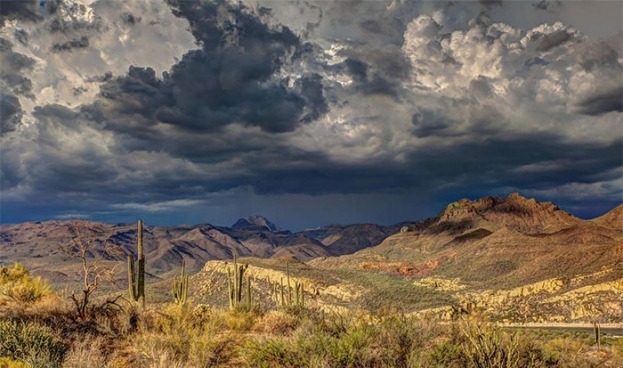 Heat & Practice & Pandemic News
Heat & Practice & Pandemic News On the Edge of a Maybe
On the Edge of a Maybe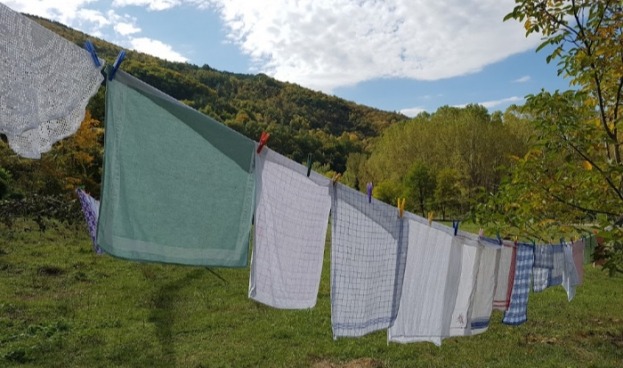 Paying Attention, Prayer Flags, and Relaxing Yourself
Paying Attention, Prayer Flags, and Relaxing Yourself Many Ways to Take
Many Ways to Take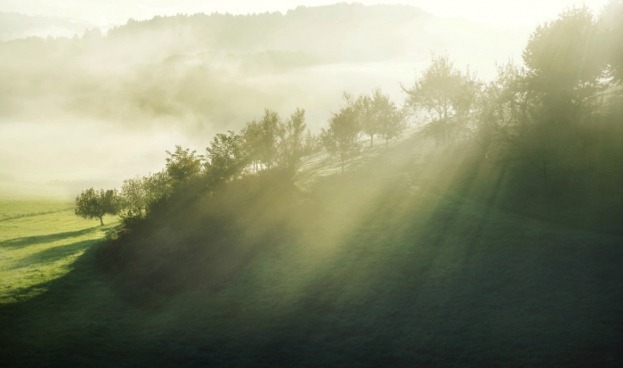 Always a Beginning
Always a Beginning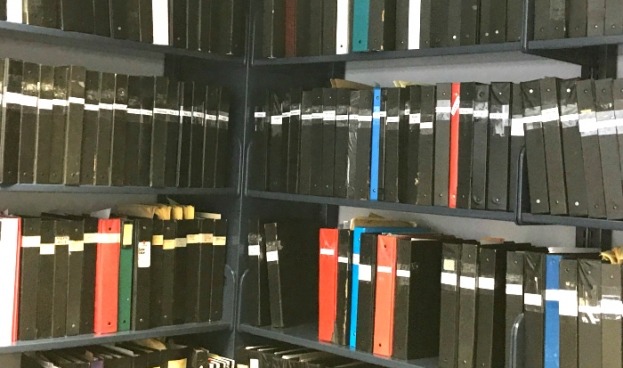 A Confluence of Time, Culture, Deaths, and Politics
A Confluence of Time, Culture, Deaths, and Politics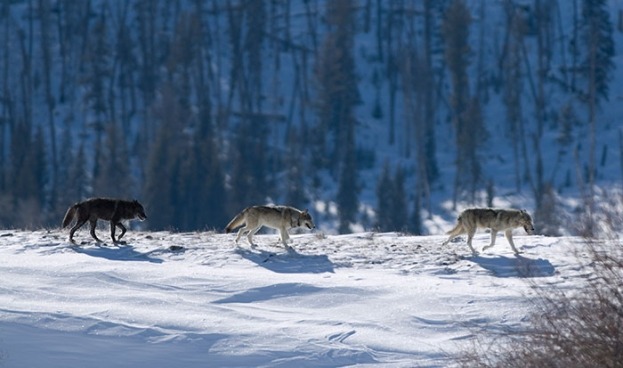 Running with the Wolves
Running with the Wolves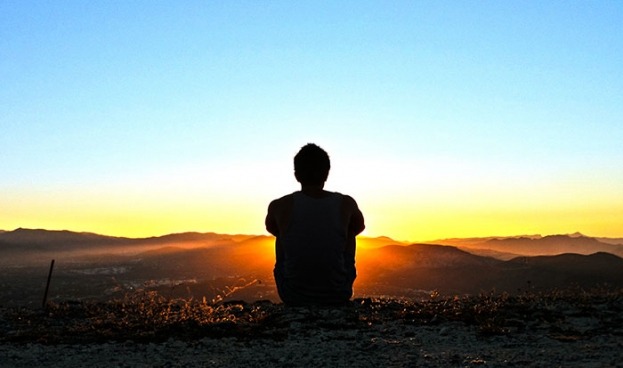 Meeting the Moment as a Friend
Meeting the Moment as a Friend